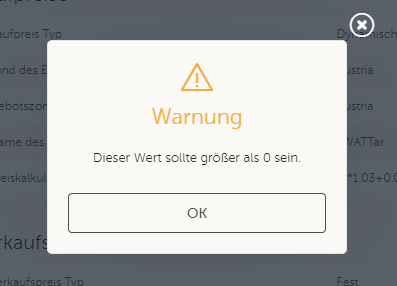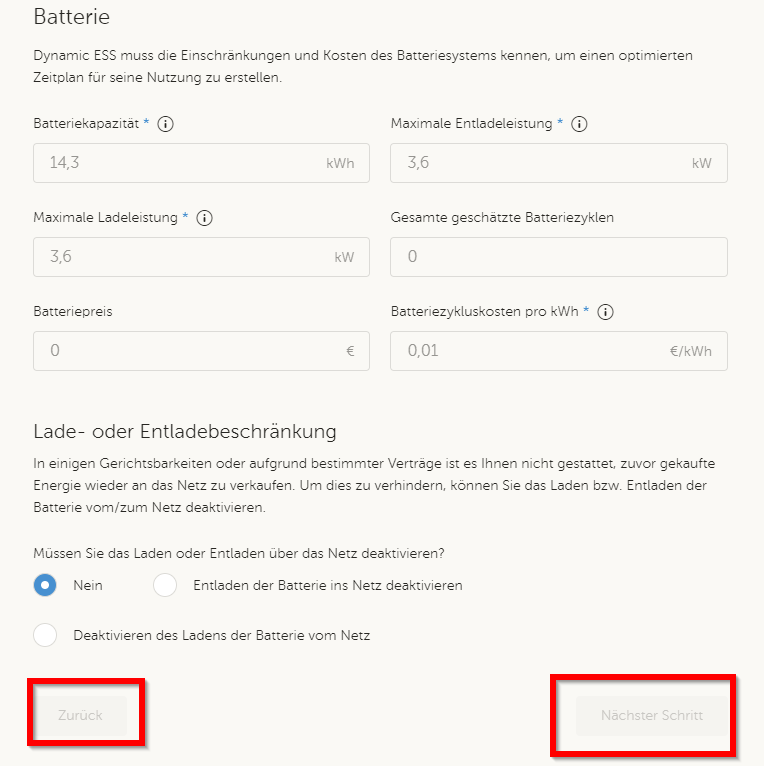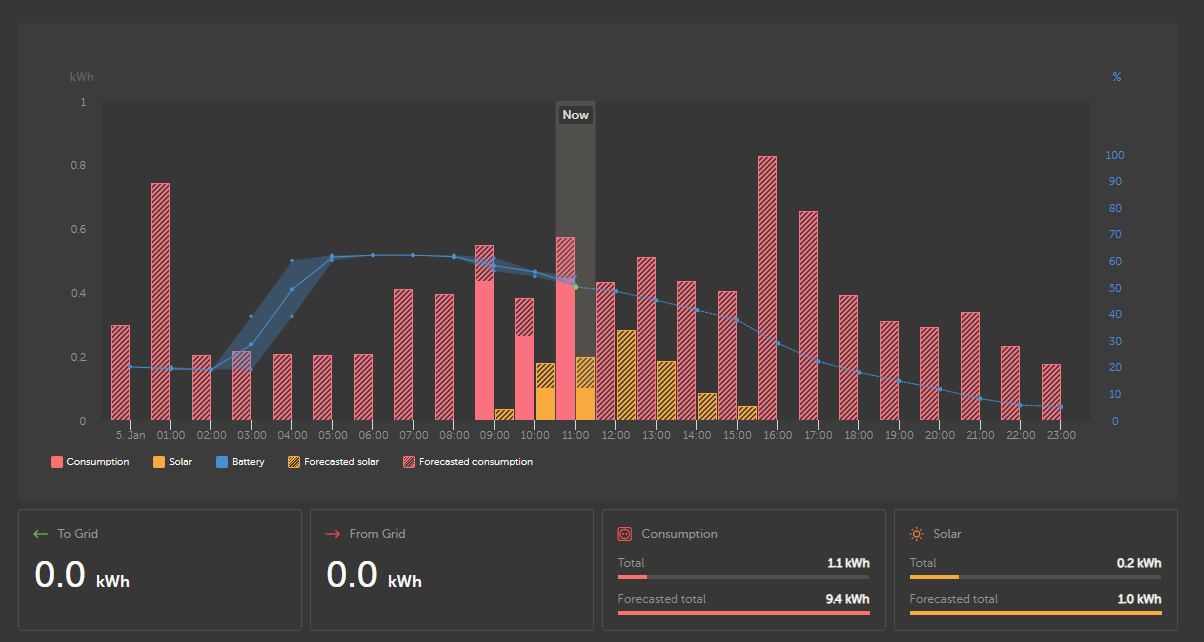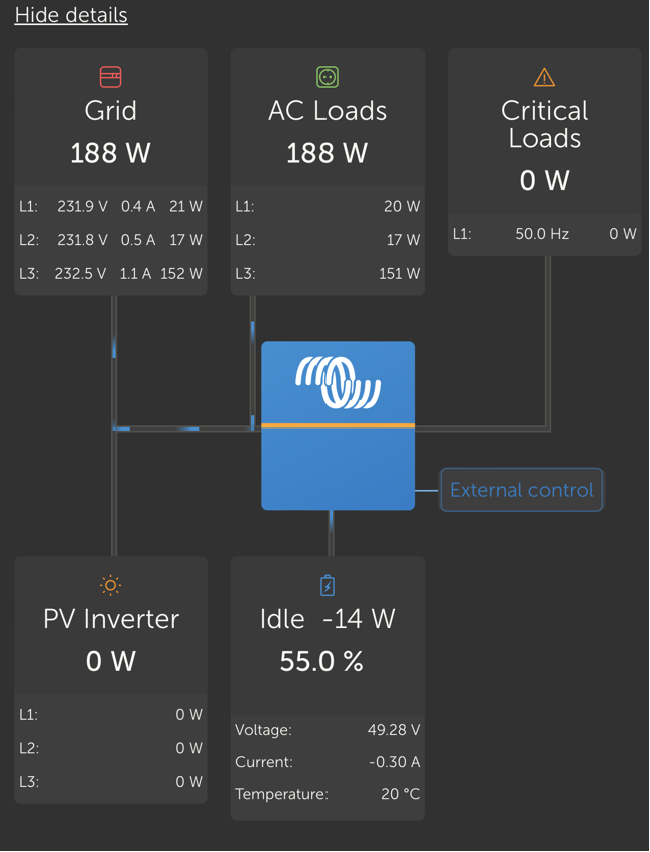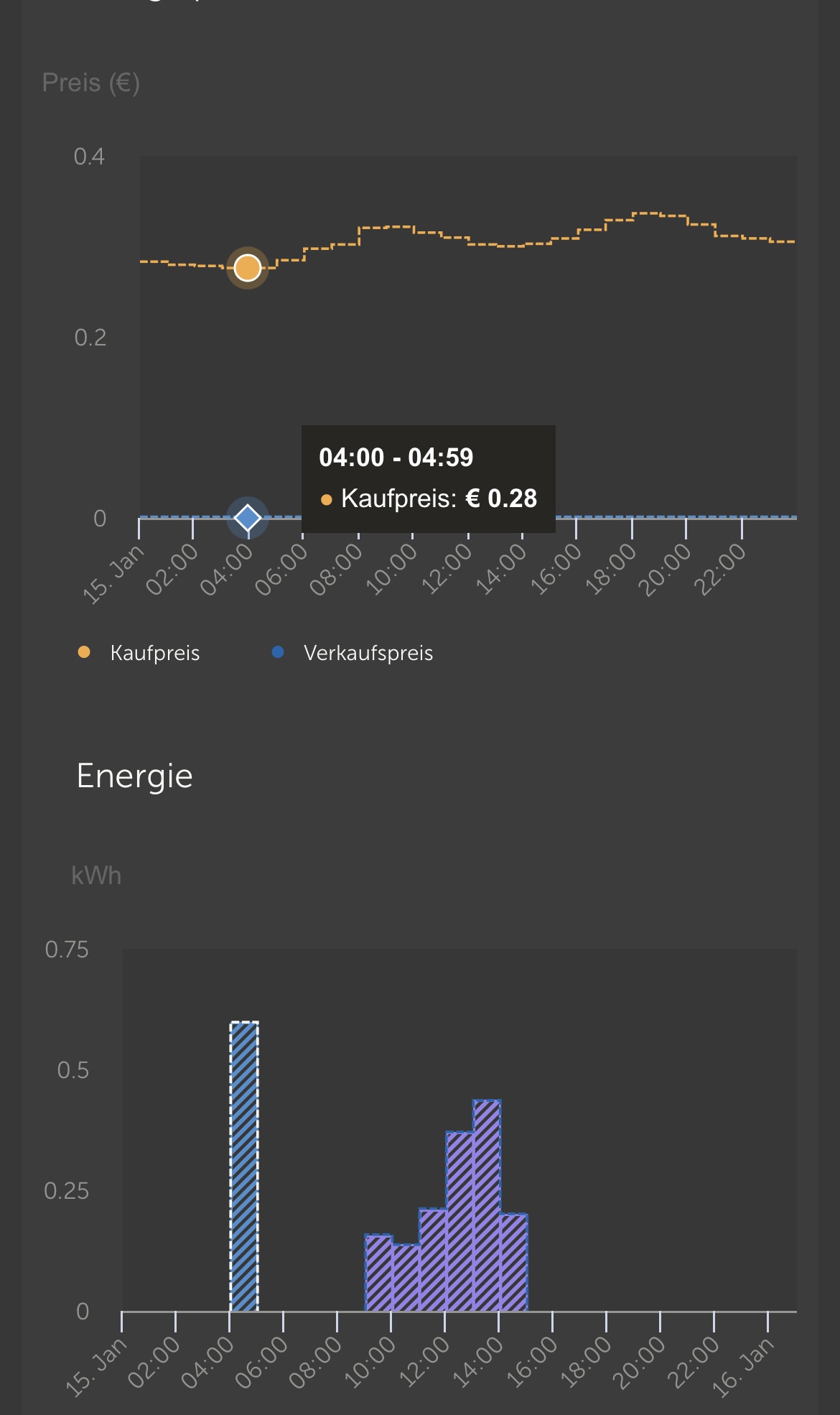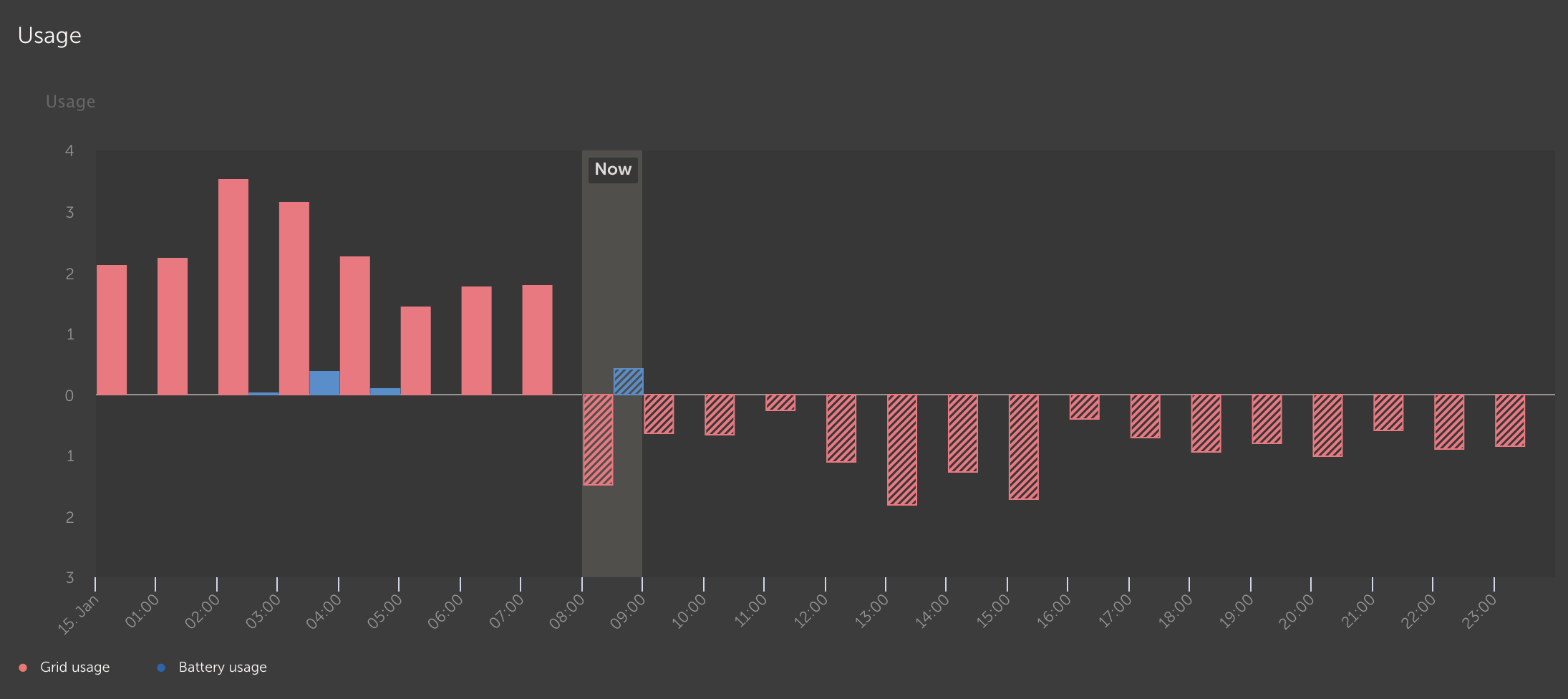Update 2024-01-19: This article has been closed for further comments. The follow up article can be found here.
2023-12-6: Important note
In case your system setup has heavy loads (EV charger, heat pumps) in front of the Victron system, there is a chance that the total load of the system exceeds what your main fuse can handle, causing it to break. See here for more information on this.
2023-12-06: Restricting charging from grid
The system now determines when it makes sense not to charge the battery from the grid. Based on that, it will enforce a restriction on not charging the battery from the grid. This can no longer match all hours of the day and this fixes the bug for systems with a low sell price where the charging from the battery always got blocked.
Dynamic ESS on Beta VRM - part 3
Hereby I present another update considering the current state of Dynamic ESS and VRM.
One of the more common complaints we received was that in cases consumption- and solar-forecasting did not match the actual usage or yield, this resulted in extra grid usage by either charging from or discharging to the grid. This could result in the system to use expensive grid power on moments that the energy prices were high. Our simulations do indicate that penalizing the grid is cheaper than penalizing the battery in the long run, but that does not mean that it should be like that for every hour. Especially when the grid energy is expensive, this is most certainly not the best option.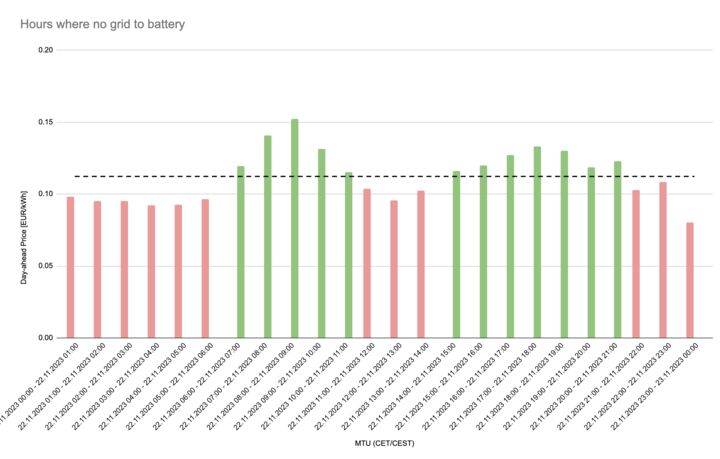
In order to mitigate this problem, we decided to re-use the global restrictions that we already implemented to follow the German regulations, but use these at the schedule level. Whenever the buy price is considered high, we set the restriction “disable charging battery from grid” for that hour. Then comes the part of deciding when the price is considered high. At the max buy price of the day, the system enforces never to charge from the grid. The other scheduled restrictions look at more factors to determine if it makes sense to charge from the grid. If it does not make sense, it enforces that by setting the restriction.
This system became effective on Node-RED since yesterday’s v0.1.10 release and effective on beta VRM this afternoon for systems running the latest candidate release of Venus OS (3.20~30). There are still more improvements to be made and we keep working on ways to further improve the system. That being said, we almost feel ready to move the system from beta VRM to VRM. Before we do that, we still need to do a bit more testing and add these restrictions to the release feed of Venus.
For those of you who missed the original posts, and wonder what this is all about. Dynamic ESS is an algorithm that aims to minimise the costs made on the grid and battery. Please check the two previous posts on the subject for further information.
You can get started with it on beta-VRM via Settings → Dynamic ESS.
There is a concept manual. All feedback can be provided below.
Note that Dynamic ESS applies mostly to countries in Europe that work with so-called “day ahead pricing”. For fixed priced contracts, the VRM version can also be used outside these countries.
For those of you who aren’t familiar with beta VRM, you can log in through this link with your normal credentials.
A webinar about this subject has been held on the 26th of September. The recording of the webinar can be found on our YouTube tech channel: https://youtu.be/YU9jXyfM-eI




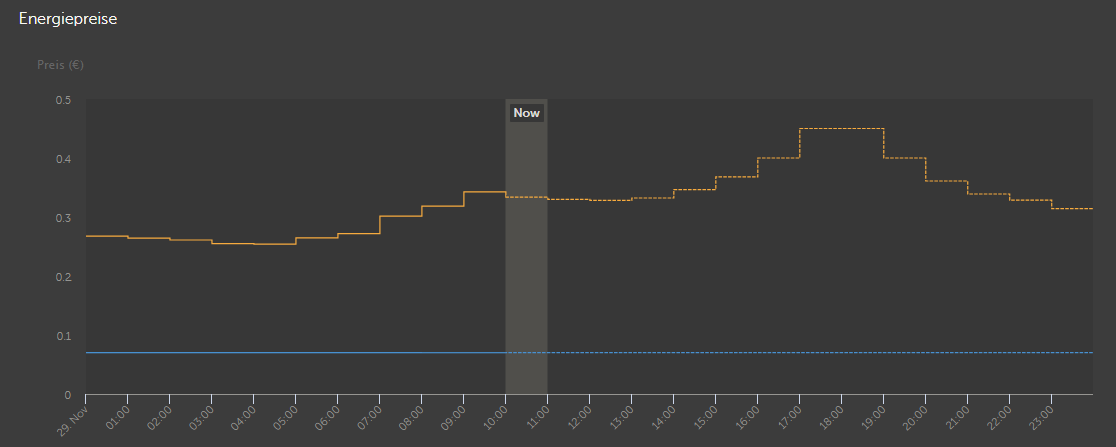










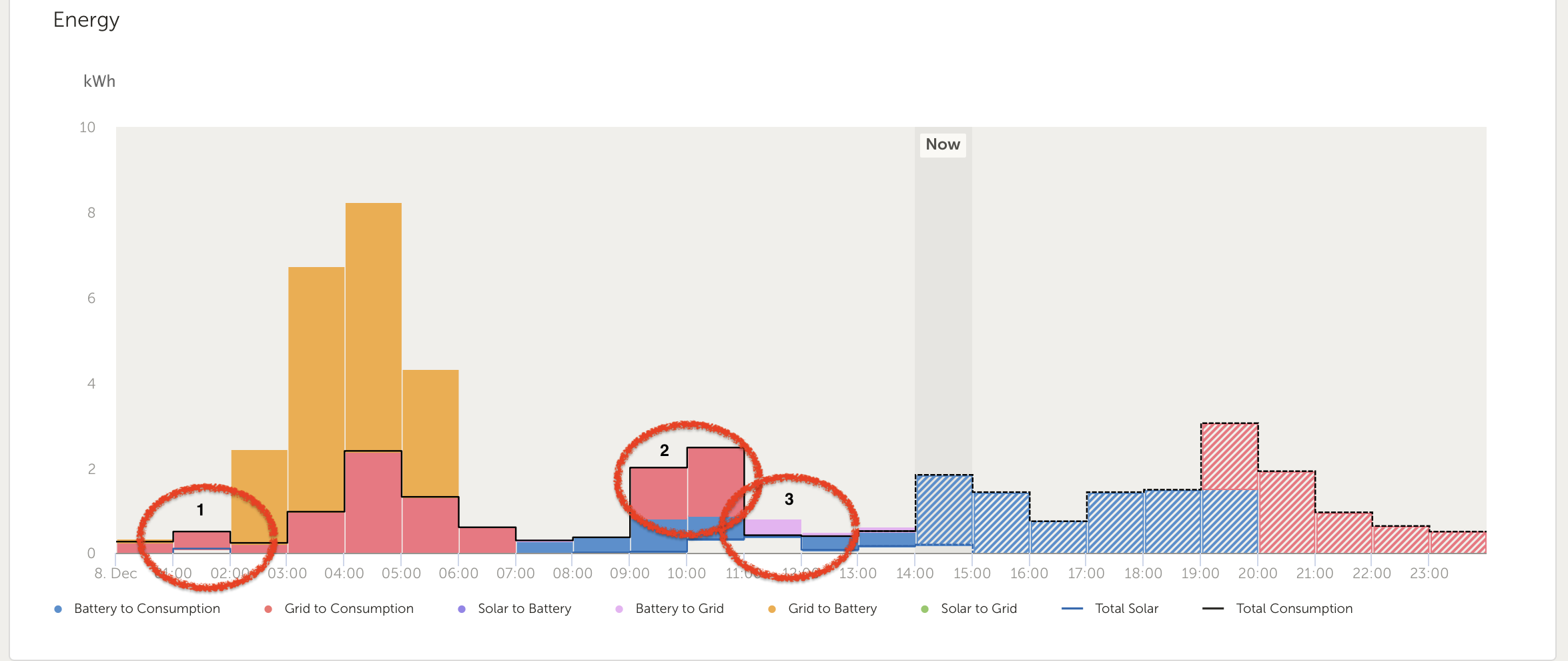










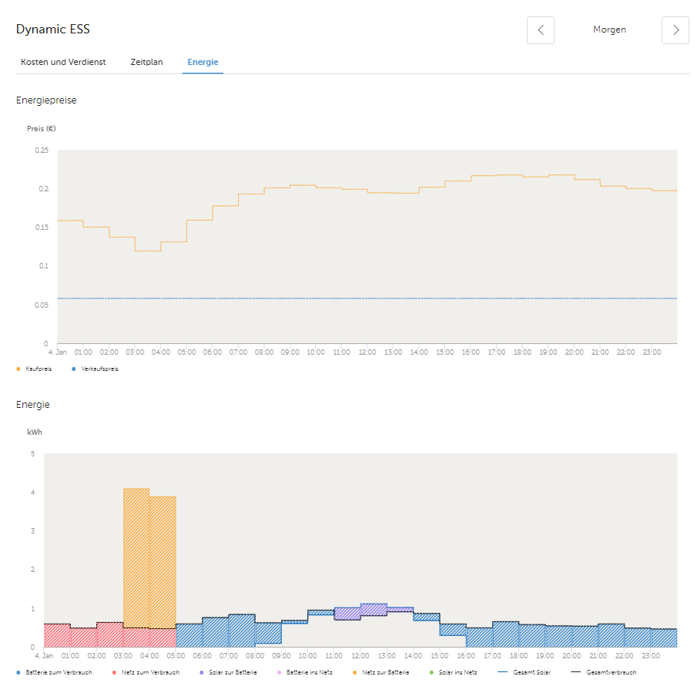
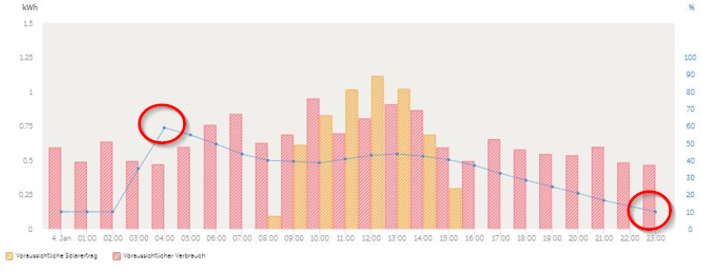
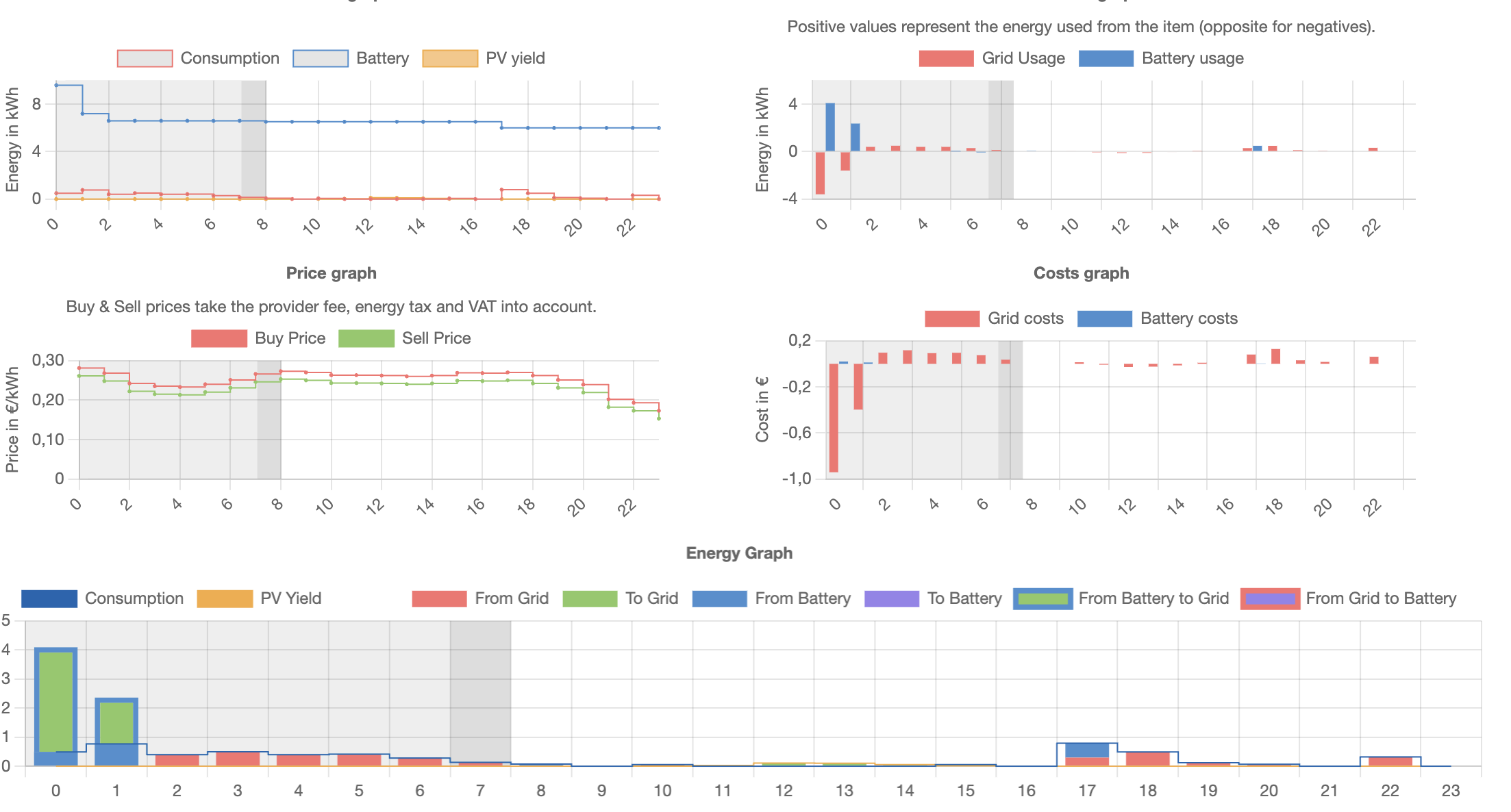


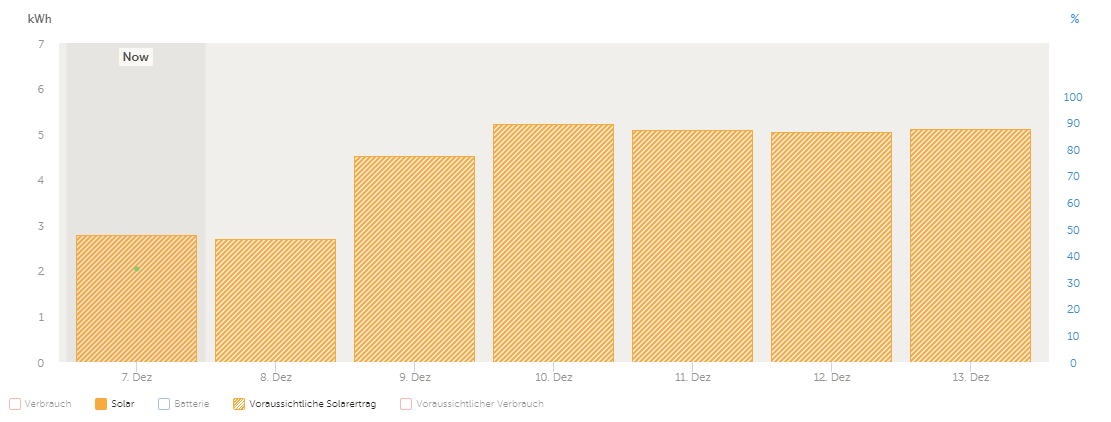
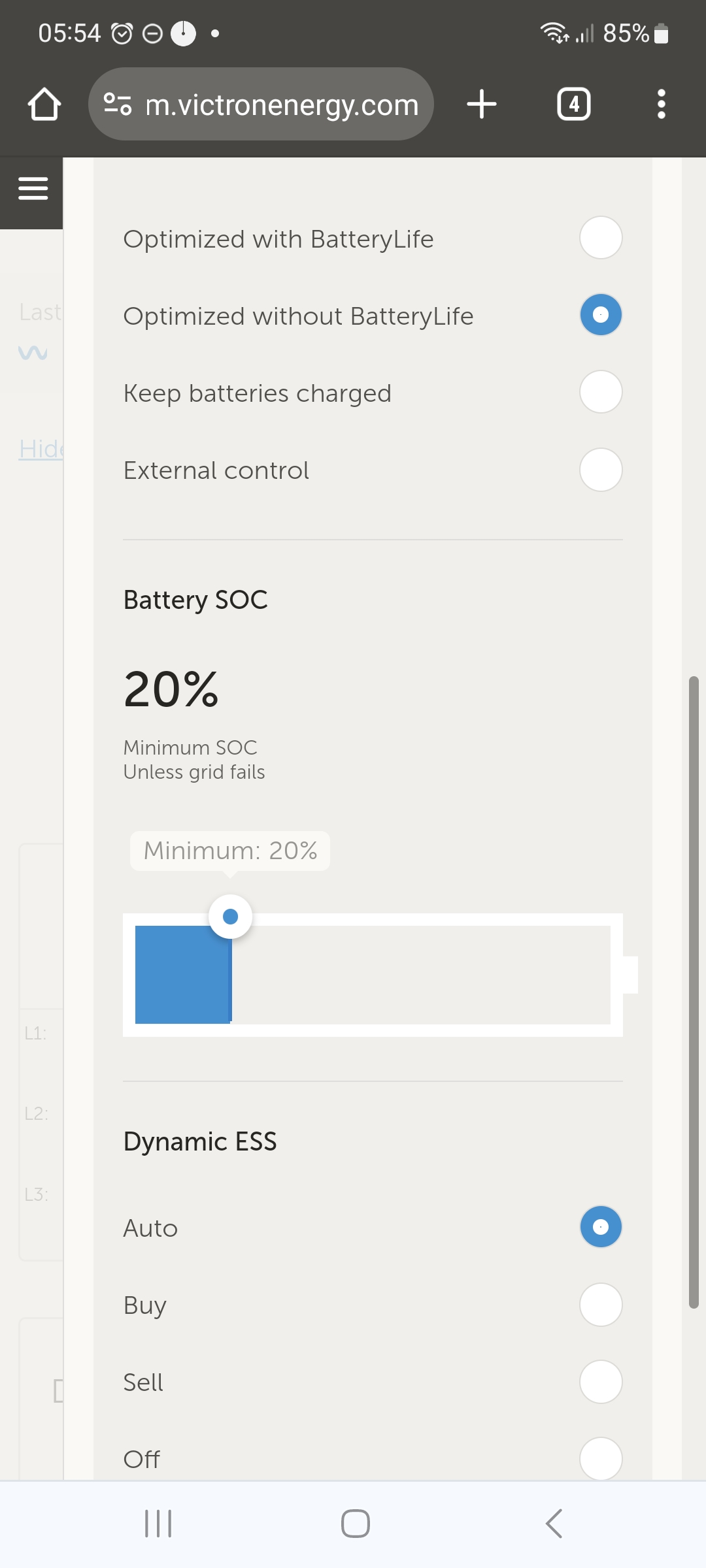


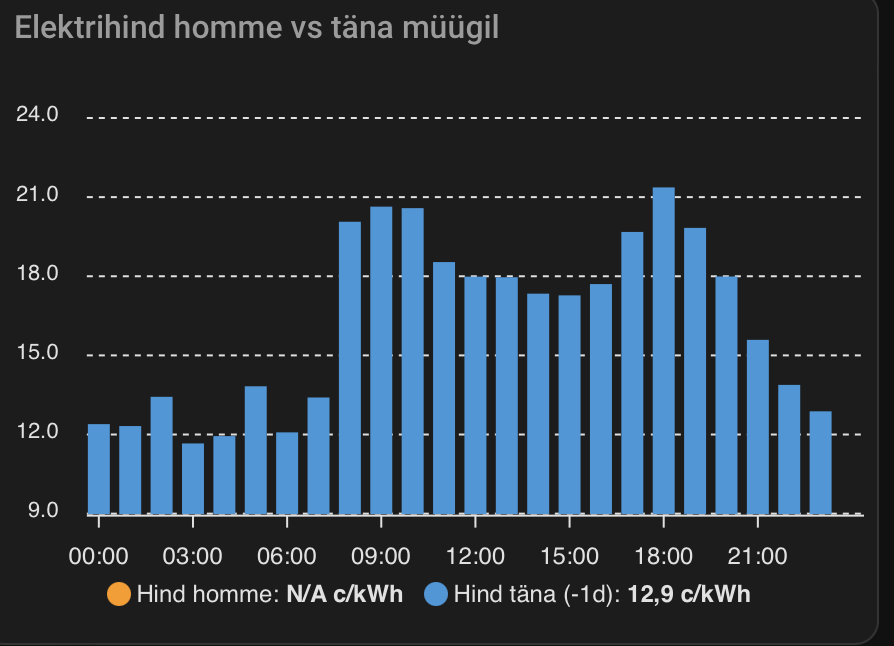

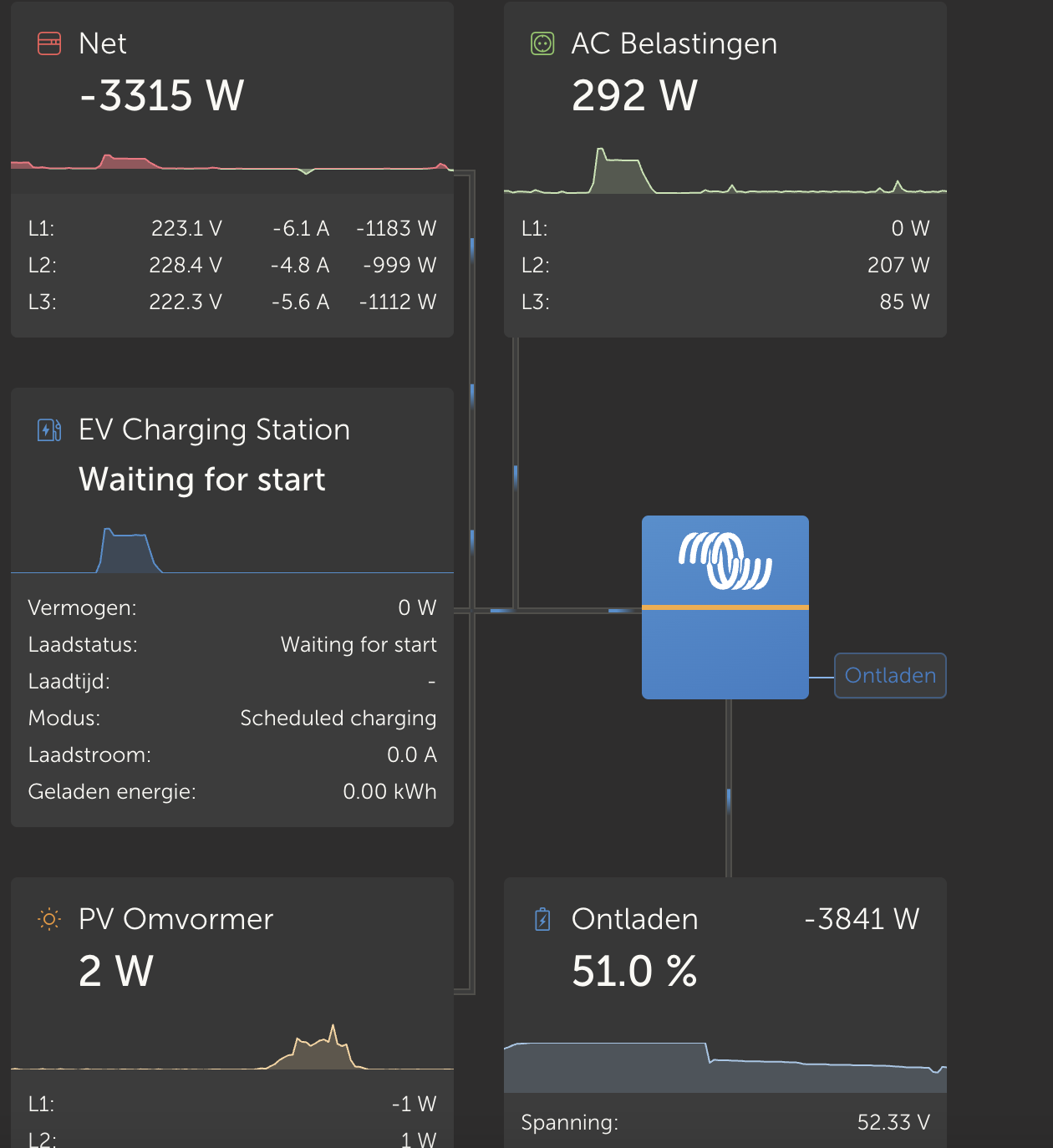


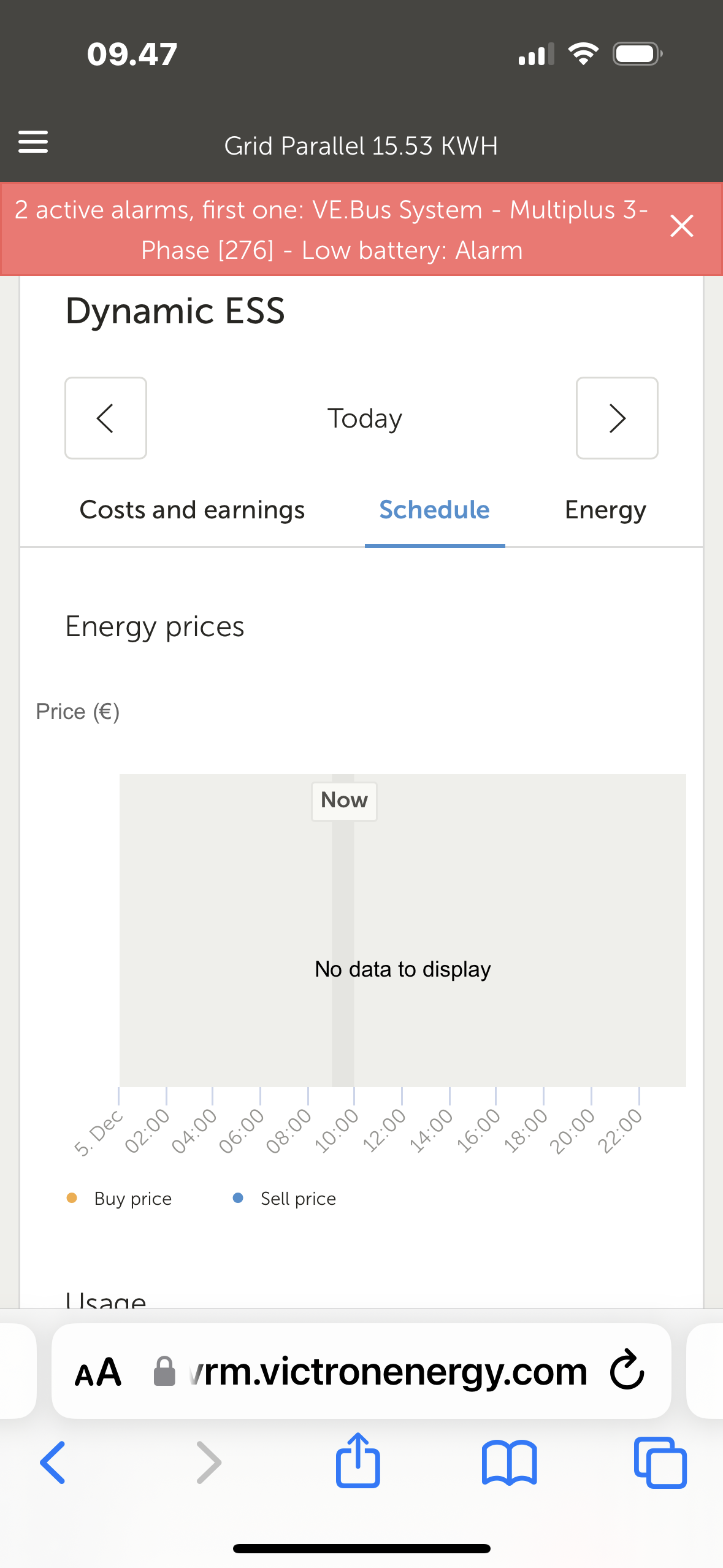

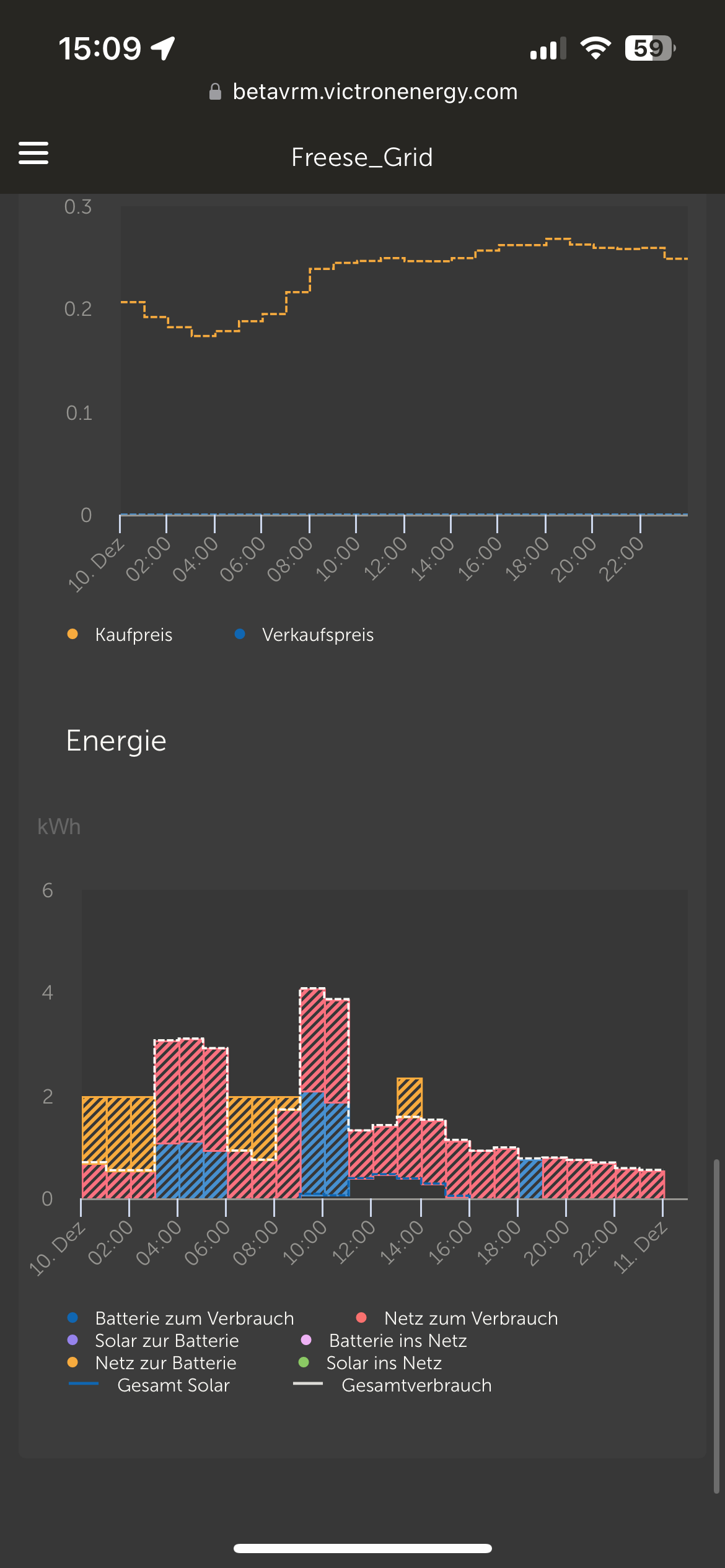 Hey, any recommendations?
Hey, any recommendations?

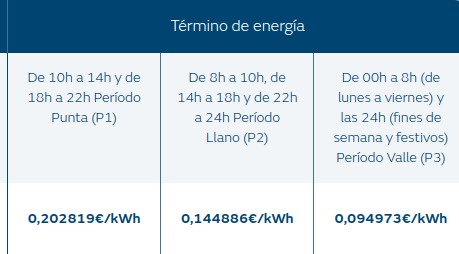

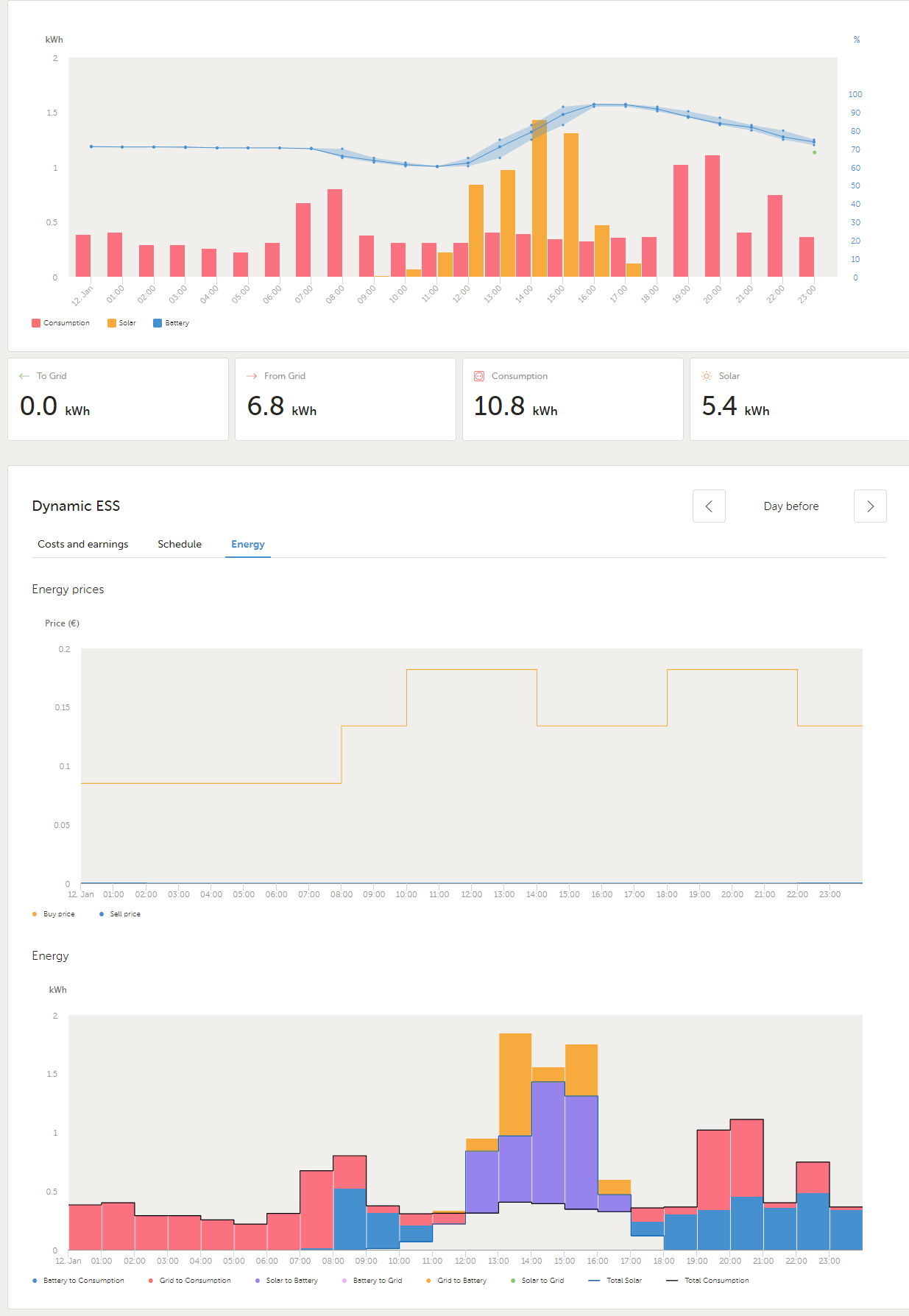





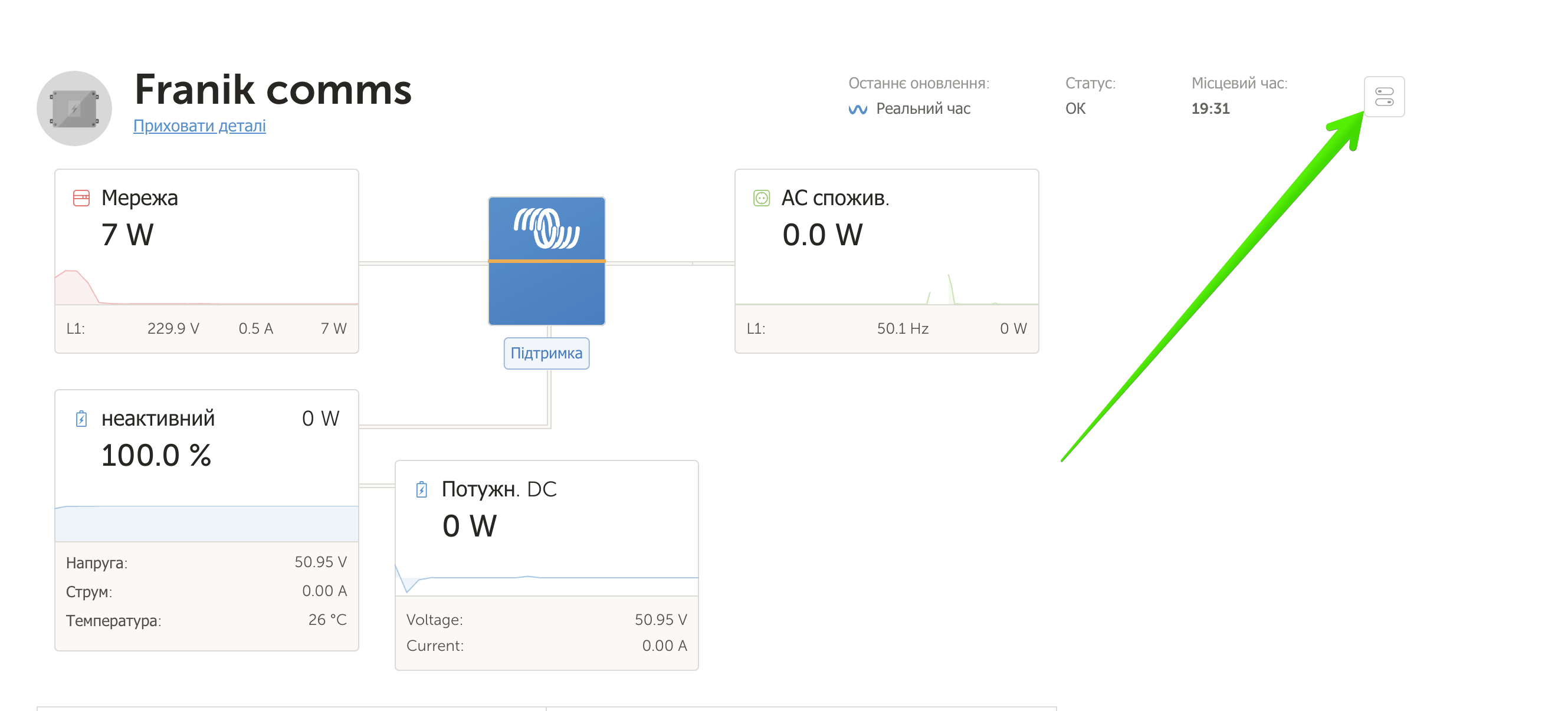







 Absorption was about 12 min then the system went back to bulk. This has various consequences:
Absorption was about 12 min then the system went back to bulk. This has various consequences:


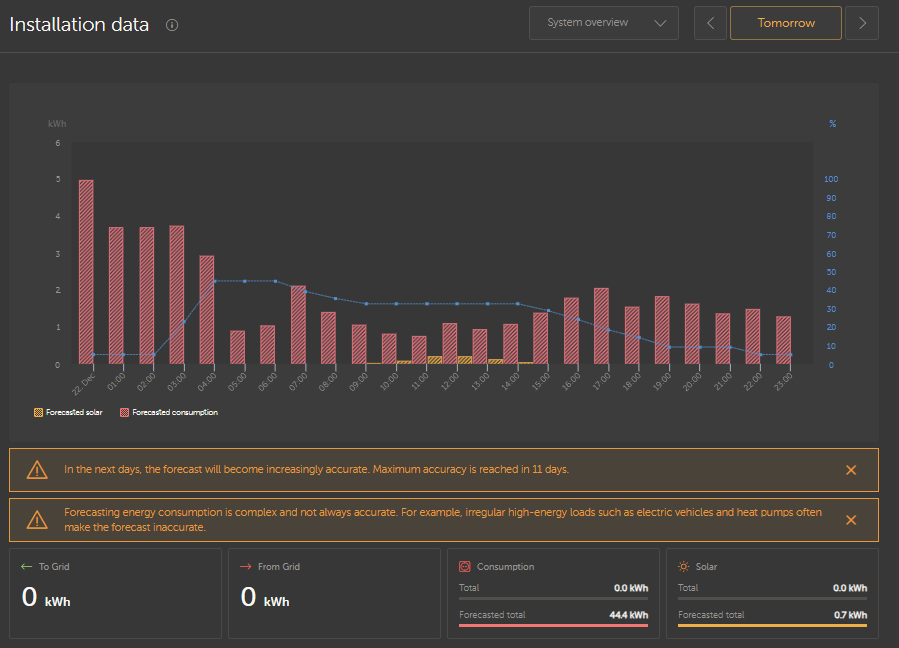


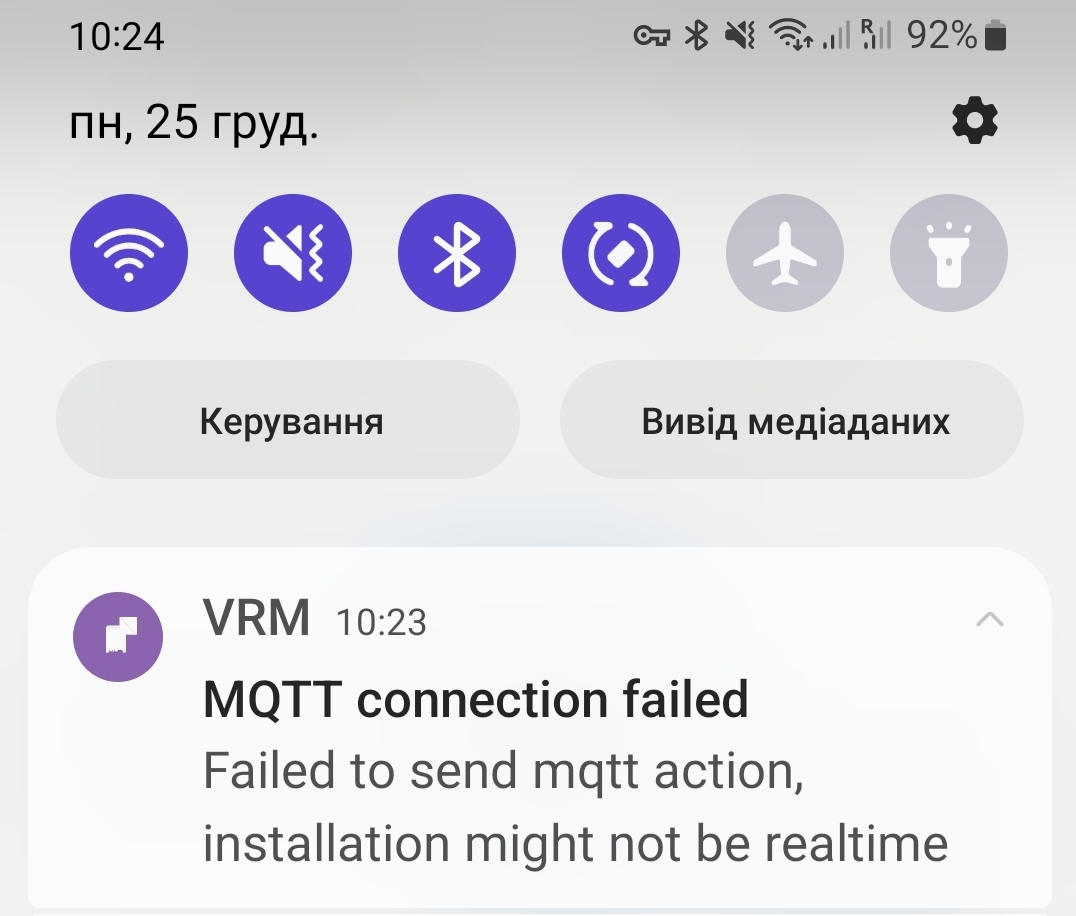
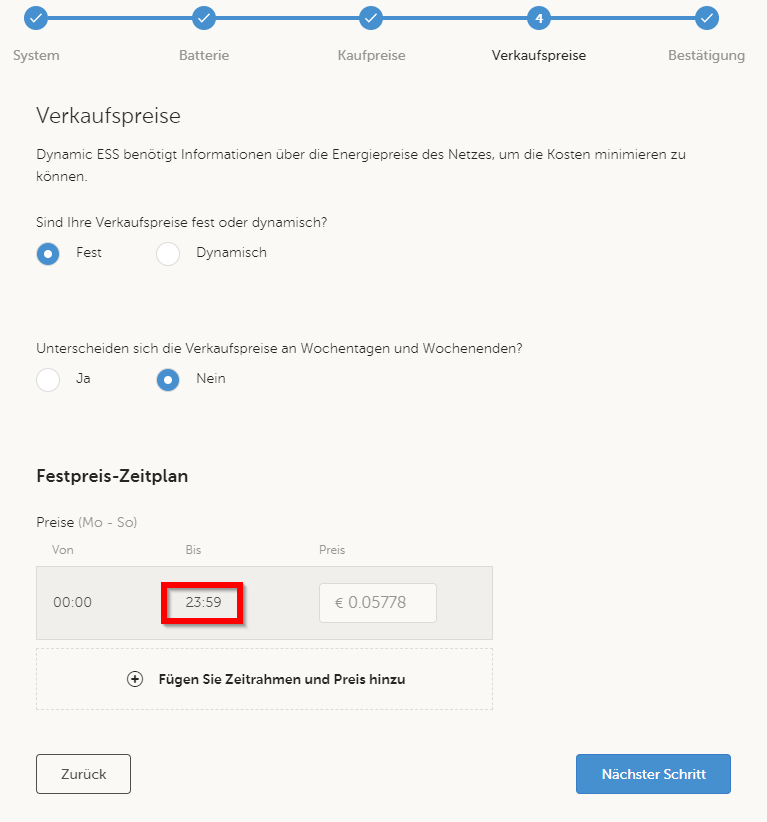
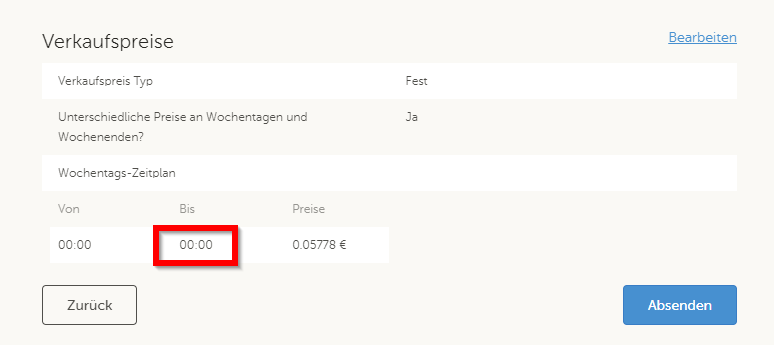 and this Warning appears:
and this Warning appears: